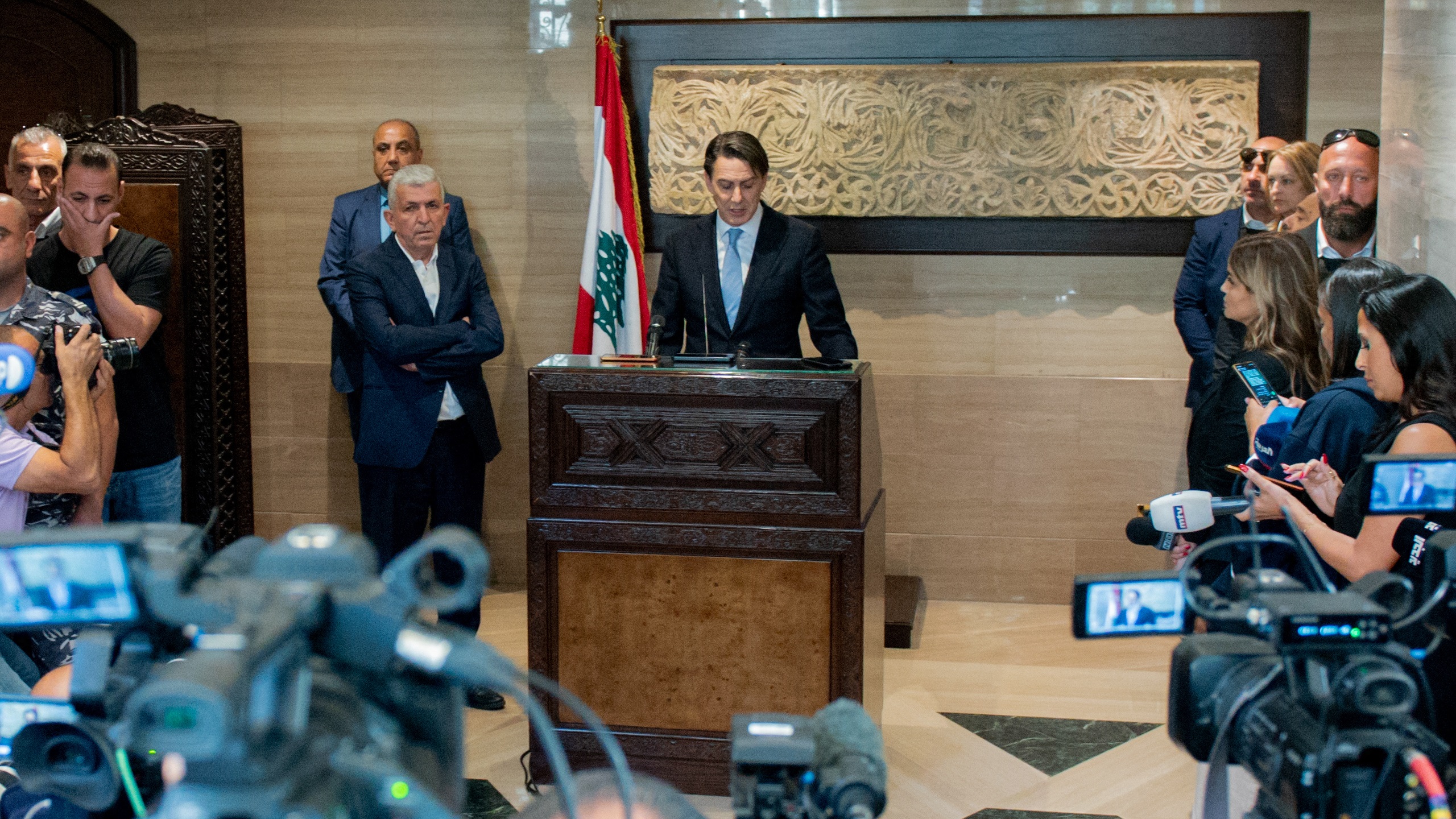US Envoy Arrives in Beirut To Advance Israel-Hezbollah Cease-Fire Talks
US envoy Amos Hochstein arrived in Beirut on Tuesday to meet with Lebanese officials regarding a potential cease-fire between Israel and Hezbollah, marking a significant development in efforts to end the ongoing conflict. His visit follows reports that Lebanon and Hezbollah have agreed to a US-proposed cease-fire, providing comments on its content.
Hochstein, a senior adviser to President Joe Biden, is expected to hold talks with Parliament Speaker Nabih Berri, a Hezbollah ally authorized to negotiate on the group’s behalf. Ali Hassan Khalil, an aide to Berri, stated on Monday that Lebanon had submitted its written response to the US ambassador in Beirut.
“Lebanon presented its comments on the paper in a positive atmosphere,” Khalil said, emphasizing adherence to UN Security Council Resolution 1701, which ended the 2006 war between Hezbollah and Israel.
Resolution 1701 requires Hezbollah to have no armed presence in the area between the Lebanese-Israeli border and the Litani River, approximately 20 miles north of the frontier. Israel contends that the resolution was never fully implemented due to the continued presence of Hezbollah fighters and weapons near the border. Lebanon accuses Israel of violating its airspace with warplanes.
This holiday season, give to:
Truth and understanding
The Media Line's intrepid correspondents are in Israel, Gaza, Lebanon, Syria and Pakistan providing first-person reporting.
They all said they cover it.
We see it.
We report with just one agenda: the truth.


Israeli Prime Minister Benjamin Netanyahu said Monday in a speech at the Knesset, Israel’s parliament, that Israel would not allow Hezbollah to return to its situation prior to the October 7, 2023 incursion into southern Israel by Hamas. “We will be required, in order to ensure our security in the north, to systematically carry out operations—not only against Hezbollah’s attacks, which could come,” he said.
Reports suggest that the proposed cease-fire includes significant changes, such as altering the composition of international forces monitoring the border. The new force may be led by the United States and France, diverging from the current U.N. framework. Israel demands not only the withdrawal of Hezbollah north of the Litani River but also the dismantling of all its infrastructure beyond that line.
Professor Amatzia Baram, an expert in international relations and national security, noted Tuesday that Israel was adopting a firmer stance against future threats. “This time, Israel is demanding more aggressive conditions—not only to distance Hezbollah physically but to ensure that its facilities and infrastructure are completely destroyed,” Baram told Maariv.
Hezbollah faces a complex situation with the proposal. While under military, economic, and political pressure, the group is considering the cease-fire terms seriously. However, a key point of contention is an American letter presented to Israel that grants legitimacy to Israeli military actions in Lebanon if violations occur. Hezbollah opposes this letter, viewing it as a breach of Lebanese sovereignty.
Hochstein’s arrival came hours after an Israeli strike in central Beirut killed five people and wounded others, marking the third Israeli strike in the heart of Beirut in two days. Since late September, Israel has escalated its bombardment of Lebanon, aiming to weaken Hezbollah and halt its rocket barrages into Israel.
Hezbollah began firing rockets on October 8, 2023, a day after Hamas attacked southern Israel, igniting the war in Gaza. Iran supports both groups. The fighting has resulted in over 3,500 deaths and nearly 15,000 wounded in Lebanon, according to the Lebanese Health Ministry. It has also displaced nearly 1.2 million people, or a quarter of Lebanon’s population.
On the Israeli side, 87 soldiers and 50 civilians have been killed by rocket, drone, and missile attacks. Israeli officials emphasize that the Israel Defense Forces must retain freedom to operate in Lebanon to prevent Hezbollah from rearming. If cease-fire efforts fail, Israeli military plans to expand ground operations in Lebanon are reportedly in place.

